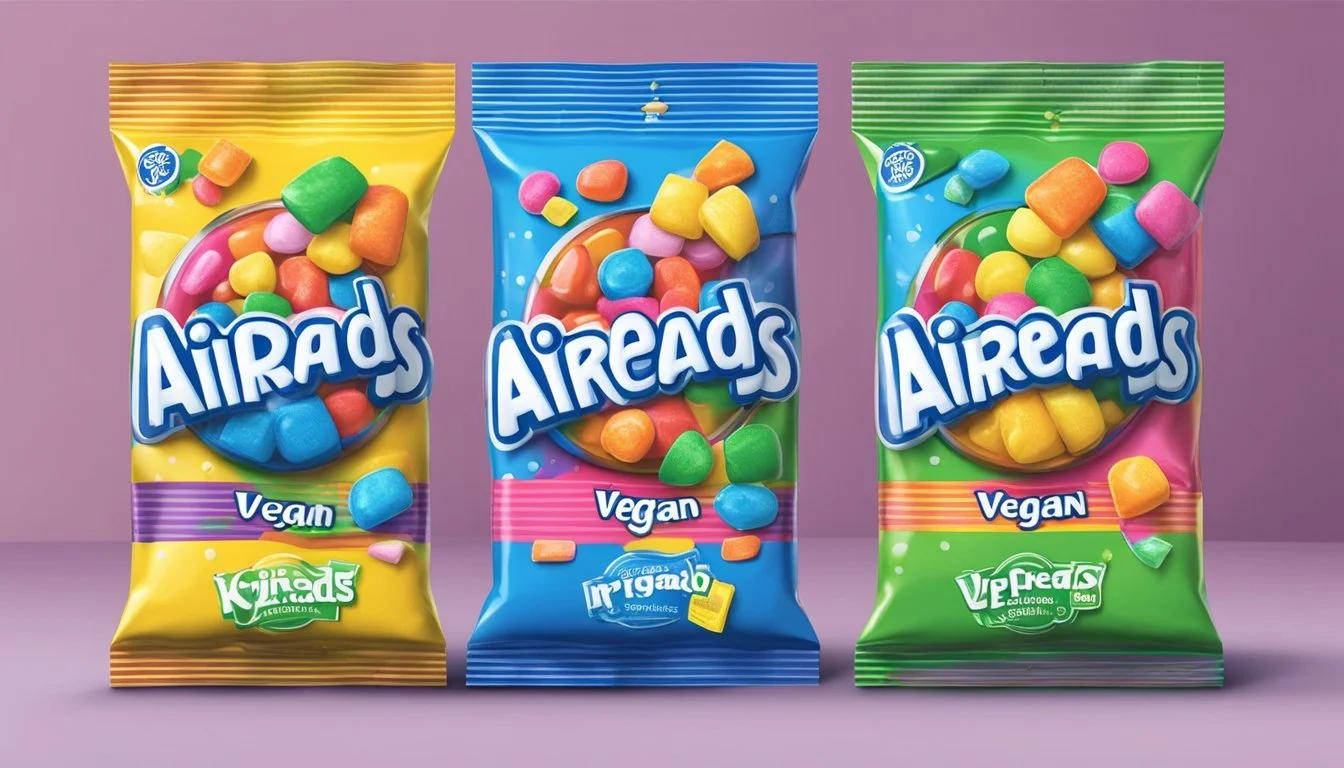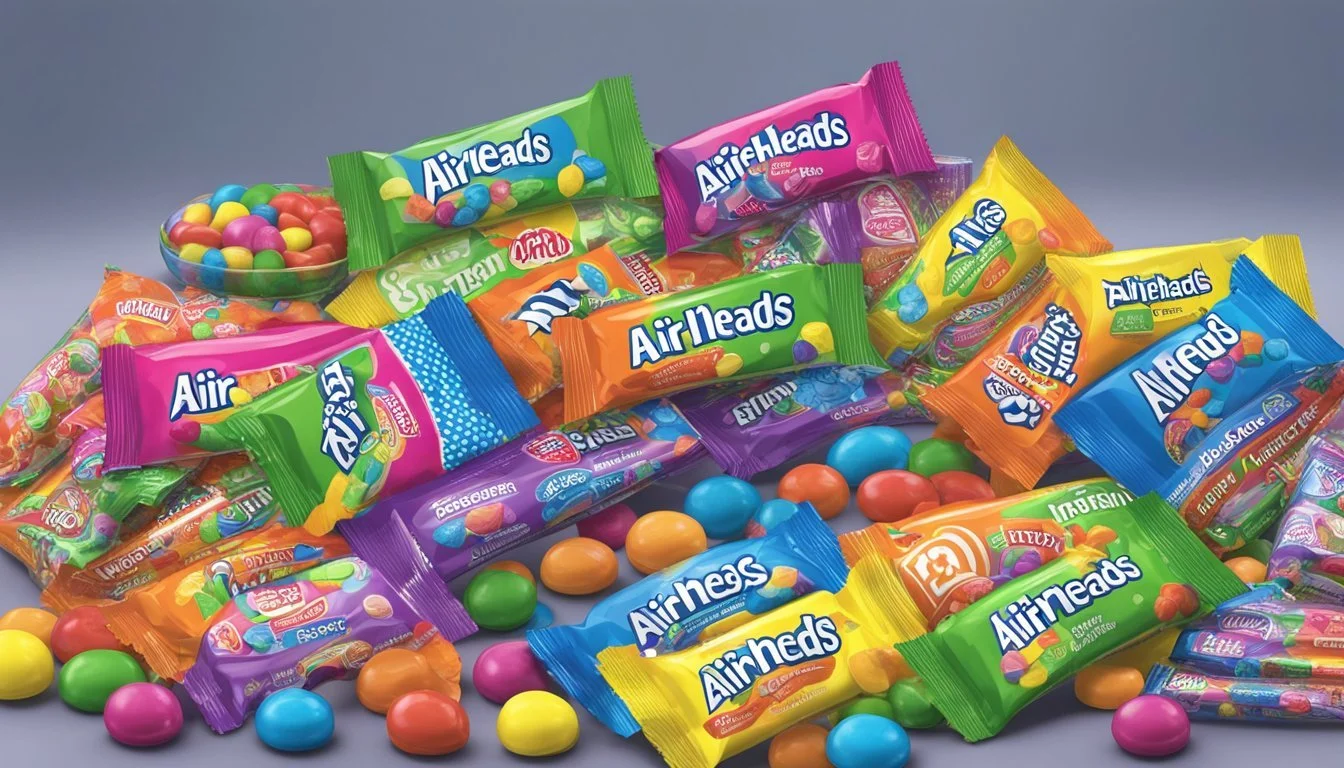Are Airheads Vegan?
Unwrapping the Ingredients List
Airheads candy has been a popular treat for many, but whether they are suitable for vegans often comes into question. This chewy, tangy candy comes in a variety of flavors and forms, making it important for consumers to understand which varieties align with a vegan lifestyle. Veganism excludes all animal products, and scrutiny of ingredients is a standard practice for those following the diet.
While many Airheads products do fit the vegan criteria by excluding direct animal ingredients, some varieties contain elements like gelatin, beeswax, or shellac, which are derived from animals. These ingredients are not considered vegan. Airheads Xtremes Bites, for instance, are known to contain gelatin, and Airheads Bites include both beeswax and shellac. Conversely, standard Airheads bars and the White Mystery gum, according to the manufacturer's information, do not contain these animal-derived substances, making them more suitable for vegan consumers.
Nevertheless, the conversation about vegan suitability does not end with the presence or absence of animal ingredients. Some vegans might scrutinize the processing of certain ingredients, such as sugar. The filtration process for sugar can sometimes involve bone char, often making it a point of contention for those on a strict vegan diet. Therefore, it is always recommended for vegans to read labels thoughtfully or reach out to manufacturers when in doubt about a product's vegan status.
Composition of Airheads
Airheads candies are composed of a variety of ingredients that contribute to their distinctive chewy texture and bold flavors. It is important to understand these components when evaluating their suitability for certain dietary preferences.
Primary Ingredients
Sugar: The main sweetening agent in Airheads.
Corn Syrup: Provides sweetness and contributes to the candy's texture.
Maltodextrin: A carbohydrate derived from starch, used as a thickening agent.
Dextrose: Another form of sugar, sourced from corn, adding to the candy's sweet taste.
Food Starch: Often modified for texture properties, it's utilized in Airheads for structure.
Hydrogenated Soybean Oil: Acts as a non-dairy fat, giving Airheads their non-sticky consistency.
Airheads do not contain gelatin, which makes many of their products an option for those following vegan diets. However, some varieties of Airheads have included gelatin in the past, so it is important to check the packaging for the most current ingredient information.
Artificial Additives
Artificial Flavors: Used to create the wide range of flavors Airheads are known for, from fruity to sour tastes.
Artificial Colors: Chemical compounds that give Airheads their vibrant, eye-catching hues.
Citric Acid: This compound provides a tangy taste and also acts as a preservative.
The use of modified food starch and hydrogenated soybean oil ensures that the texture of Airheads is consistent and enjoyable. When considering Airheads within a vegan diet, one should carefully assess the labels, as some products may vary in their ingredients.
Vegan-Friendly Criteria
When assessing whether Airheads or any candy meets vegan-friendly criteria, it is essential to identify non-vegan ingredients and understand the certification processes that validate vegan claims.
Common Non-Vegan Ingredients
Non-vegan ingredients are those derived from animals, and they can frequently be found in candies. Below is a list of common non-vegan substances to look out for:
Gelatin: Sourced from collagen in animal bones and skin, it's used as a gelling agent.
Carmine: A red dye made from crushed cochineal insects.
Shellac: Often used as a glazing agent, it is secreted by lac bugs.
Beeswax: Produced by bees, this is used as a standard wax in various consumables.
Bone Char: Charred animal bones can be used in the sugar refining process.
Candies, including some varieties of Airheads, may contain these ingredients, thus disqualifying them from being vegan.
Vegan Certification Process
Vegan certification provides assurance that a product complies with vegan standards. The certification process entails:
Ingredient Review: A thorough examination of all ingredients to ensure they do not derive from animal sources.
Production Analysis: Ensuring that there is no cross-contamination with non-vegan substances during manufacturing.
Oversight and Approval: By reputable organizations which may include inspection or review by a certifying entity.
Products passing this process may display a certified vegan logo, indicating they are safe for consumers adhering to a vegan lifestyle.
Airheads Specific Analysis
This section examines whether Airheads candies meet vegan standards, the contentious ingredients they may contain, and the availability of plant-based alternatives.
Vegan Status of Airheads Candies
Airheads are a popular brand of chewy candies that come in a variety of flavors. The vegan status of these candies is not absolute; it depends on specific ingredients that may vary by product. Some formulations of Airheads do not contain animal-derived ingredients and could be considered vegan. However, others may include components like gelatin—which is derived from animal collagen—and are therefore not vegan.
Controversial Ingredients
Several ingredients in Airheads candies prompt debate within the vegan community:
Gelatin: Typically sourced from animals, making any product containing it non-vegan.
Carmine (Red 4): A colorant made from cochineal insects, not suitable for vegans.
Beeswax and Shellac: Sourced from bees and the secretions of the lac bug respectively, found in some Airheads products.
Palm Oil: Although plant-based, its inclusion is contentious due to environmental concerns.
Artificial Colors: These can be tested on animals, raising ethical issues.
Soybean Oil: Vegan, but some vegans may avoid it due to GMO concerns or the use of pesticides in cultivation.
Ingredients may also be processed on shared equipment with non-vegan products, leading to potential cross-contamination.
Plant-Based Alternatives
Vegans seeking alternatives to Airheads that are free from animal-derived ingredients have several options:
Fruit-Based Candies: Often free from controversial ingredients listed above.
Organic Candies: Less likely to contain artificial colors and GMOs.
These alternatives can offer similar experiences to Airheads while aligning with vegan principles.
Health and Dietary Considerations
When considering Airheads from a health and dietary perspective, it is important to assess their nutritional content and potential allergens or sensitivities that might impact certain consumers, especially those adhering to vegan or vegetarian diets, those with gluten intolerance, or those allergic to nuts.
Nutritional Content
Airheads are primarily composed of sugar, corn syrup, and modified food starch, contributing to their sweet and tangy taste. They are typically low in fat but high in sugars and contain a small amount of sodium. As with many candies, they are often considered an indulgence rather than a nutritional snack. For individuals on vegan diets, it is reassuring to know that some Airheads products do not contain animal-derived ingredients.
Calories: The calorie content in Airheads is comparable to other sugary candies, which means they should be enjoyed in moderation.
Sugar: Being candy, Airheads have a high sugar content, and consuming them frequently could impact one's blood sugar levels.
Allergens and Sensitivities
Gluten-Free: Airheads do not contain gluten ingredients, making them suitable for those with gluten intolerance or celiac disease.
Vegan Considerations: While many Airheads are free of animal-derived ingredients, it is important to note that some varieties may include gelatin, which is not vegan. Consumers should check the packaging for specific product information.
Nuts: The manufacturing of Airheads may not involve nuts, but individuals with severe nut allergies should verify manufacturing processes to ensure there is no cross-contamination.
Each person’s dietary requirements and restrictions are unique, and it is always best to consult the ingredient list and nutritional information on the packaging for the most accurate and current information.
Environmental Impact and Ethics
When considering vegan sweets like Airheads, it is critical to assess their production's environmental impact and the ethical considerations that ensue. This encompasses both the sustainability of the practices employed by the manufacturers and the ethical implications tied to the ingredients used.
Sustainable Practices
In terms of sustainability, the production of plant-based ingredients, such as the sugars and flavors used in Airheads, often requires less water and results in lower greenhouse gas emissions than animal-based products. However, the use of palm oil can be a point of concern. It is associated with deforestation and habitat destruction when not sourced responsibly. Consumers increasingly favor candies made with sustainable palm oil or alternative ingredients that mitigate environmental damage.
Ethical Concerns
The ethical dimension of candy production, including Airheads, delves into ingredient sourcing. While the candies are plant-based, ethical concerns arise if any of the ingredients are sourced from areas implicated in labor rights abuses or if they contribute to ecological harm such as deforestation. Brands that commit to organic farming practices tend to support more ethical standards of production. Organic practices typically ensure that plant-based ingredients are grown without harmful pesticides and are more likely to respect the integrity of ecosystems and the well-being of the workers involved.
Consumer Information
When evaluating whether Airheads are vegan, consumers should scrutinize the labeling and packaging for ingredient details and availability information, which vary across different varieties and flavors.
Labeling and Packaging
Airheads typically list their ingredients on the packaging, which is crucial for vegans identifying animal products. Consumers will find that most Airheads are made primarily from sugar, corn syrup, and artificial flavors and colors including Red 40, Yellow 5, Yellow 6, and Blue 1. Some varieties, such as the Soft Filled Bites, Xtremes Sourfuls, and Gummies, contain gelatin, an animal-based ingredient. Vegans should also be aware of the possible inclusion of carmine in certain flavors like Airheads Xtremes, which is another non-vegan component. The Airheads flavor lineup includes but is not limited to Blue Raspberry, Strawberry, Watermelon, Cherry, Orange, Green Apple, Grape, White Mystery, and Rainbow Berry.
Availability and Varieties
Airheads are widely available in numerous varieties, offering a range of flavor options. The original lineup includes Strawberry, Watermelon, Cherry, Orange, Green Apple, and Blue Raspberry. There are also mixed packs such as the Rainbow Berry, encompassing a blend of berry flavors. Not all varieties of Airheads conform to vegan standards due to the inclusion of certain colorings and additives. Consumers should check each package for these details. Here is a quick reference for some popular Airheads varieties:
Original Airheads: Generally vegan-friendly, subject to flavor-specific additives
Airheads Xtremes: Often non-vegan due to potential carmine content
Airheads Gummies: Contains gelatin, not suitable for vegans
Alternatives to Airheads
Consumers seeking plant-based candy alternatives to Airheads have a variety of options available. From commercially produced vegan candies to homemade treats, there are many choices for those adhering to a vegan diet.
Vegan Candy Options
For those looking for ready-made, vegan-friendly sweets that are similar to Airheads in terms of their fruity and chewy profile, the market offers several alternatives:
Skittles: Once containing gelatin, this classic candy is now gelatin-free and suitable for vegans.
Swedish Fish: Known for their unique texture and flavor, these gummy candies do not contain any animal-derived ingredients.
Sour Patch Kids: These sour-then-sweet treats are also free from animal-based gelatin, making them a popular choice for vegans.
It's essential for consumers to check the labels for updates on ingredients, as formulations can change.
Homemade Sweets
For those who prefer to make their vegan candy at home, numerous recipes can cater to the desire for a sweet treat:
Fruity Gelatin-Free Chews: Utilizing pectin or agar-agar, these homemade candies can emulate the chewy texture that one might expect from a product like Airheads.
Coconut Oil-Based Sweets: Incorporating coconut oil and natural sweeteners can yield a variety of candies with different flavors and consistencies.
Creating sweets at home allows for complete control over the ingredients, ensuring that the treats align with vegan dietary restrictions.
Conclusion
When assessing whether Airheads candies align with a vegan diet, individuals need to consider the ingredients of each specific product. Generally, standard Airheads are free from animal-derived components such as gelatin and dairy, making them suitable for vegans. However, certain products like Airheads Xtremes Bites and Airheads Bites are not vegan-friendly.
It is imperative for vegans to scrutinize product labels. The ingredients can vary, and occasionally, some might contain elements that do not meet vegan standards. Those adhering to veganism must be aware that recipes and ingredients can change; therefore, the most reliable approach is to review the ingredients list at the time of purchase.
Here is a simplified breakdown of Airheads options:
Standard Airheads: Typically vegan.
Airheads Xtremes Bites: Not vegan.
Airheads Bites: Not vegan.
The market for vegan confections is dynamic, with recipes evolving to accommodate consumer demands. Vegans should continuously monitor for updates from the manufacturer regarding any changes to product formulations.
To sum up, while many Airheads products can be enjoyed by those following a vegan lifestyle, vigilance is key to ensure the chosen treats are indeed vegan.








